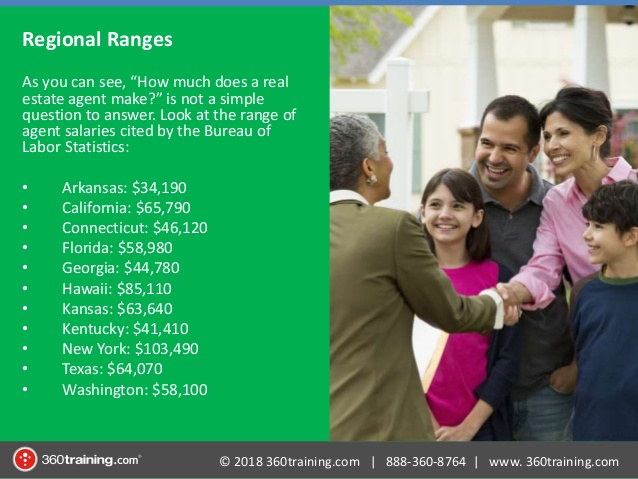
What's the difference between a Real estate agent and a real estate broker? Both have different functions so here are some differences. You might want to hire an agent, or a broker, if you are trying to buy or sell your home. Both are important, so you have the right to choose. Read our comparison article on broker vs agent to learn more.
Real estate agent
While there are some differences between agents and brokers, both are essential to a successful home buying experience. While brokers handle legalities, buyers' agents locate properties and negotiate offers. Brokers also assist in the paperwork and hold escrow funds. A buyer's agent helps buyers find the right house. Agents are often referred to as brokers in some jurisdictions.

Realtors are licensed real estate professionals, while agents are licensed salespeople. Each type must have a real estate license. They must follow strict ethical codes. Real estate agents must also be members of NAR (National Association of Realtors) and adhere to their code of ethics. A broker is a licensed real-estate agent. These roles are very different.
Agent for the buyer
You should consider your individual circumstances when deciding between a buyer's representative and a broker. The former is legally required to represent the buyer's best interests. The seller's buyer's agent has a fiduciary responsibility. Buyer's agents often have a better understanding of buyers' needs because they can see things from an outsider's point of view. Buyers need to be aware of the drawbacks and benefits of working with a buyer agent.
A buyer's agent can provide a variety of services, including market analysis, evaluating comparable sales, and determining the offer value based on the features of the property. He or she may also assist with preparing a co-op board package or handling other contract terms. The buyer's agent can also help you navigate the potential speed bumps that could cause a deal to be canceled. The agent can help you avoid those speed bumps by making sure that you don't make a mistake that could cost you thousands.
Insurance broker
If you're looking to buy insurance, deciding between an insurance broker and an agent can be an important decision. In order to be licensed as an insurance agent, they must have a license from the state. Brokers, on other hand, allow you to compare multiple options, which can save you significant time. Here are some reasons to choose an insurance broker.

The biggest difference between an independent insurance agent and an agency is the representation. While an insurance agent represents an insurer, a broker represents an insurance buyer. A broker may represent one insurance company or all of them. A broker can represent multiple companies and have a greater network of contacts. A broker can represent multiple insurers while an agent may only represent one. This is a significant difference.
FAQ
How do I fix my roof
Roofs can leak due to age, wear, improper maintenance, or weather issues. Repairs and replacements of minor nature can be made by roofing contractors. Contact us for more information.
Is it better to buy or rent?
Renting is generally less expensive than buying a home. It is important to realize that renting is generally cheaper than buying a home. You will still need to pay utilities, repairs, and maintenance. Buying a home has its advantages too. You will have greater control of your living arrangements.
How much money will I get for my home?
The number of days your home has been on market and its condition can have an impact on how much it sells. The average selling price for a home in the US is $203,000, according to Zillow.com. This
Statistics
- It's possible to get approved for an FHA loan with a credit score as low as 580 and a down payment of 3.5% or a credit score as low as 500 and a 10% down payment.5 Specialty mortgage loans are loans that don't fit into the conventional or FHA loan categories. (investopedia.com)
- 10 years ago, homeownership was nearly 70%. (fortunebuilders.com)
- Based on your credit scores and other financial details, your lender offers you a 3.5% interest rate on loan. (investopedia.com)
- This means that all of your housing-related expenses each month do not exceed 43% of your monthly income. (fortunebuilders.com)
- Private mortgage insurance may be required for conventional loans when the borrower puts less than 20% down.4 FHA loans are mortgage loans issued by private lenders and backed by the federal government. (investopedia.com)
External Links
How To
How to Manage A Rental Property
It can be a great way for you to make extra income, but there are many things to consider before you rent your house. We will show you how to manage a rental home, and what you should consider before you rent it.
Here are the basics to help you start thinking about renting out a home.
-
What should I consider first? Before you decide if your house should be rented out, you need to examine your finances. If you have debts, such as credit card bills or mortgage payments, you may not be able to afford to pay someone else to live in your home while you're away. You should also check your budget - if you don't have enough money to cover your monthly expenses (rent, utilities, insurance, etc. ), it might not be worth it.
-
How much will it cost to rent my house? It is possible to charge a higher price for renting your house if you consider many factors. These include things like location, size, features, condition, and even the season. Prices vary depending on where you live so it's important that you don't expect the same rates everywhere. Rightmove has found that the average rent price for a London one-bedroom apartment is PS1,400 per mo. If you were to rent your entire house, this would mean that you would earn approximately PS2,800 per year. That's not bad, but if you only wanted to let part of your home, you could probably earn significantly less.
-
Is it worth it? Doing something new always comes with risks, but if it brings in extra income, why wouldn't you try it? Be sure to fully understand what you are signing before you sign anything. You will need to pay maintenance costs, make repairs, and maintain the home. Renting your house is not just about spending more time with your family. Before signing up, be sure to carefully consider these factors.
-
What are the benefits? You now know the costs of renting out your house and feel confident in its value. Now, think about the benefits. Renting out your home can be used for many reasons. You could pay off your debts, save money for the future, take a vacation, or just enjoy a break from everyday life. It is more relaxing than working every hour of the day. If you plan well, renting could become a full-time occupation.
-
How do I find tenants? After you have made the decision to rent your property out, you need to market it properly. Start by listing online using websites like Zoopla and Rightmove. Once potential tenants reach out to you, schedule an interview. This will help you assess their suitability and ensure they're financially stable enough to move into your home.
-
How can I make sure that I'm protected? If you don't want to leave your home empty, make sure that you have insurance against fire, theft and damage. You will need insurance for your home. This can be done through your landlord directly or with an agent. Your landlord may require that you add them to your additional insured. This will cover any damage to your home while you are not there. This doesn't apply to if you live abroad or if the landlord isn’t registered with UK insurances. In such cases, you will need to register for an international insurance company.
-
Sometimes it can feel as though you don’t have the money to spend all day looking at tenants, especially if there are no other jobs. But it's crucial that you put your best foot forward when advertising your property. A professional-looking website is essential. You can also post ads online in local newspapers or magazines. Additionally, you'll need to fill out an application and provide references. While some prefer to do all the work themselves, others hire professionals who can handle most of it. Interviews will require you to be prepared for any questions.
-
What should I do once I've found my tenant? You will need to notify your tenant about any changes you make, such as changing moving dates, if you have a lease. Otherwise, you can negotiate the length of stay, deposit, and other details. Keep in mind that you will still be responsible for paying utilities and other costs once your tenancy ends.
-
How do I collect the rent? When the time comes for you to collect the rent you need to make sure that your tenant has been paying their rent. You will need to remind your tenant of their obligations if they don't pay. You can deduct any outstanding payments from future rents before sending them a final bill. If you're having difficulty getting hold of your tenant you can always call police. They will not usually evict someone unless they have a breached the contract. But, they can issue a warrant if necessary.
-
What are the best ways to avoid problems? It can be very lucrative to rent out your home, but it is important to protect yourself. You should install smoke alarms and carbon Monoxide detectors. Security cameras are also a good idea. Check with your neighbors to make sure that you are allowed to leave your property open at night. Also ensure that you have sufficient insurance. You should not allow strangers to enter your home, even if they claim they are moving in next door.